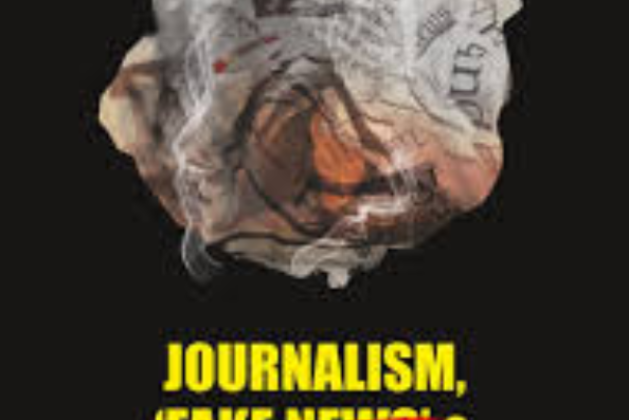In an era of constant news and information overload, journalism, the backbone of informed societies, is facing a serious crisis. With the rise of social media, clickbait, and profit-driven news outlets, the truth is being distorted, and the purpose of journalism seems to be slipping away. But here’s the kicker: we, the people, still have the power to demand better. This article will explore how the media is failing its audience, the consequences of this decline, and why it’s crucial for citizens, especially the youth, to stand up, fight for the truth, and hold the media accountable.
Table of Contents
Introduction: The News We Deserve (But Aren’t Getting)
Picture this: You wake up, grab your coffee, and check the news—only to be bombarded by sensational headlines, fake stories, and clickbait articles. Instead of reliable, fact-checked journalism, you’re scrolling through a never-ending stream of rumors and unverified reports. Sounds familiar, right?
Unfortunately, this is the reality many of us face today. The media, which was once a trusted pillar of democracy, is increasingly failing to deliver the truth. Instead, it has become more about generating traffic, making profits, and feeding the 24/7 news cycle with as much sensationalism as possible.
But before we dive into why this is happening and how it’s affecting society, let’s get one thing clear: good journalism still matters. We need journalists who investigate, inform, and hold those in power accountable. Without this, society loses its ability to make informed decisions, and we’re left vulnerable to manipulation.
The Decline of Journalism: How Did We Get Here?
Let’s start with the root of the issue: how did we end up with such a mess of misinformation, sensationalism, and media manipulation?
- The Shift to Digital: In the past, traditional media outlets—newspapers, TV stations, and radio—were responsible for vetting information and presenting the facts. But with the rise of the internet, social media platforms, and blogs, anyone can publish information. While this democratized the spread of information, it also opened the door for false narratives to flourish unchecked. And let’s face it, “breaking news” often feels like “breaking fake news” nowadays.
- Profit Over Integrity: In the race for views, clicks, and advertising revenue, many news outlets have prioritized sensationalist headlines over in-depth, factual reporting. The result? We’re more likely to see stories about celebrity gossip or wild conspiracy theories than stories that hold governments and corporations accountable. Journalistic integrity is being traded for profit, and it’s doing a disservice to the public.
- Rise of Clickbait: Headlines like “You won’t believe what happened next!” are designed to draw us in, but they often mislead us into clicking on articles that don’t even contain the real story. Media outlets have discovered that outrage sells—the more shocking, the better. But in this pursuit of engagement, they’ve forgotten what true journalism is about: providing the truth, no matter how boring it may seem.
The Consequences of Media Failures: Why It’s a Big Deal
Now that we know how we got here, let’s talk about why it matters. The decline of journalism doesn’t just affect how we spend our time online; it has real-world consequences:
- Erosion of Trust: When media outlets focus more on entertainment and shock value than providing factual reporting, trust in the media erodes. People become skeptical of everything they read, even legitimate stories. This makes it easier for misinformation to spread, and harder for truth to be distinguished from lies.
- Informed Decisions Are Harder to Make: As citizens, we rely on the media to provide us with the information we need to make informed decisions—whether it’s voting, choosing leaders, or understanding global issues. If the media fails in this role, we’re left in the dark, and the very foundation of democracy weakens.
- The Spread of Misinformation: Fake news isn’t just annoying—it’s dangerous. When false information spreads unchecked, it can cause real harm. Think about the anti-vaccine movement, election interference, or even climate change denial. These all stem from misinformation that has been spread by irresponsible media reporting.
- Manipulation by Those in Power: Without the media holding power to account, those in positions of authority—governments, corporations, even powerful individuals—can easily manipulate public opinion. The media should be the watchful eye, not an accomplice in spreading false narratives or corporate agendas.
How the Media Should Be Working: What We Deserve and Need
So, what should the media look like if it were doing its job properly? Let’s paint a picture of a healthy media ecosystem:
- Accuracy and Accountability: Journalists should prioritize truth over speed. Stories should be fact-checked, sources should be credible, and the public should be provided with clear, unbiased information.
- Investigative Journalism: The media should serve as a watchdog, uncovering corruption, exposing inequality, and holding those in power accountable. Investigative journalism isn’t just about reporting the facts—it’s about digging deeper to reveal hidden truths.
- Diverse Perspectives: A strong media landscape should present a wide range of viewpoints, allowing for healthy debates. No one should feel like their voice is silenced, and the media shouldn’t serve only a select group’s interests.
- Ethical Standards: Media outlets should follow clear ethical guidelines—be transparent about their sources, avoid sensationalism, and ensure that their reporting doesn’t intentionally mislead or harm the public.
What Can Citizens Do? How to Demand Better Journalism
Now that we’ve covered the problems, let’s talk about solutions. As citizens, we have the power to demand better journalism and hold media outlets accountable:
- Be Critical Consumers: Don’t just consume news blindly. When you read a headline, ask yourself, “Is this true? Who’s reporting this? What’s the source?” Educate yourself on how to spot fake news and be skeptical of sensational stories that seem too good (or bad) to be true.
- Support Ethical Journalism: Choose to support media outlets that prioritize truth and integrity over sensationalism. Subscribe to reputable sources, share articles that are based on facts, and call out misleading reports when you see them.
- Fight for Media Literacy: Educating yourself and others about how to critically analyze news is a powerful tool in the fight against misinformation. The more informed the public is, the harder it will be for false narratives to gain traction.
- Use Your Voice: Speak out! Whether it’s writing to media outlets, engaging in social media discussions, or supporting campaigns that promote journalistic integrity, make sure your voice is heard. When we demand better, the media will have no choice but to listen.
A Call to Action: Youth, It’s Time to Stand Up
Here’s the thing: the youth are the future of media. The digital generation has the power to shape the way news is created and consumed. Social media, blogs, and online platforms offer a unique opportunity to bypass traditional media channels and create a more transparent, responsible media landscape.
But with great power comes great responsibility. It’s up to you—yes, you, the youth—to demand better journalism, call out corruption, and fight for truth in the news. Your voice matters. You are the ones who can turn the tide, restore integrity to the media, and ensure that the truth is always the top priority.
Conclusion: Demand Better, Demand the Truth
The decline of journalism is a serious issue, and it’s only getting worse. But the good news is that we have the power to change it. By staying informed, supporting ethical journalism, and holding media outlets accountable, we can ensure that the media serves the public and the truth, not profits and sensationalism.
To the youth: your future depends on the information you consume. Make sure it’s accurate, fair, and reliable. The media should work for you—not the other way around.
Read More: Demanding Justice: How Citizens Can Hold Governments Accountable and Protect Their Rights





My brother suggested I might like this website He was totally right This post actually made my day You cannt imagine just how much time I had spent for this information Thanks
Ive read several just right stuff here Certainly price bookmarking for revisiting I wonder how a lot effort you place to create this kind of great informative website
Thanks I have recently been looking for info about this subject for a while and yours is the greatest I have discovered so far However what in regards to the bottom line Are you certain in regards to the supply